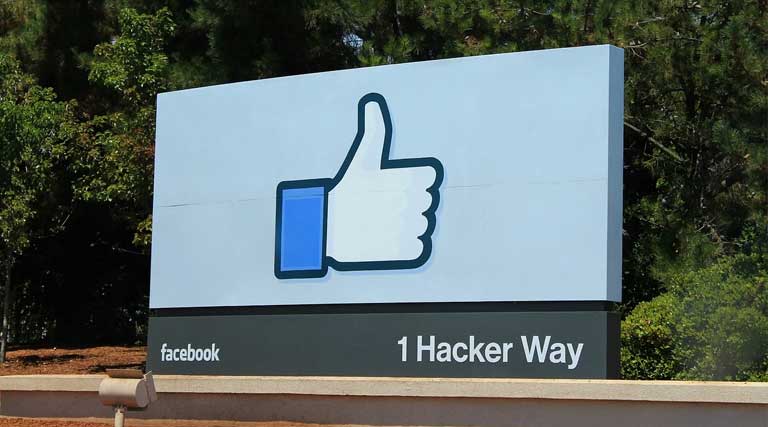Should A Business That Has Success Be Penalized And Have Their Acquisitions Rolled Back?
-By Eric Peterson (via The Center Square)
Last Wednesday, New York’s Letitia James led 48 other state attorneys general in filing a lawsuit against Facebook on antitrust grounds. Not to be outdone, the Federal Trade Commission (FTC) then also filed its own antitrust suit against the social media company.
Although there are some meaningful differences in the lawsuits, the main contention of both is that Facebook’s purchase of both Instagram and WhatsApp were done to restrict competition, thus giving Facebook a monopoly over “Personal Social Networking Services.” Both lawsuits suggest remedies, including spinning off Instagram and WhatsApp from Facebook.
This case raises troubling issues of fairness in the enforcement of American antitrust laws, along with an ex post facto decision-making that could have profound implications for the future of American business. When Facebook went to acquire Instagram, it went through the FTC without a single dissenting vote. The WhatsApp merger attracted even less scrutiny, as the messaging service was a very distinct product from social media.
It wasn’t just the FTC that saw little threat from the Instagram deal. Both lawsuits note that at the time of purchase, Instagram had only 30 million users, just more than a dozen employees, and no revenue. Jon Stewart of The Daily Show fame even remarked at the time that Facebook just paid a billion dollars “for a thing that kind of ruins your pictures.” But through investment and improvement of the product, Facebook turned Instagram into one of the most popular options for social media. It’s plausible that without Facebook’s experience and resources, Instagram would not thrive as it does today and instead be just another forgotten photo app.
The complaints against the acquisition of WhatsApp are even more puzzling. Although it’s the largest messaging app with over two billion users, Facebook has yet to figure out a way to recoup its investment in the popular app. This fact is also noted in the lawsuits. This is unsurprising, as competition in the messaging space is incredibly high. Texts and iMessage, FaceTime, Google Messenger, and dozens of other apps are all available free of charge to connect us to our friends and family.
Many forget it wasn’t that long ago when cellular calls were charged by the minute, and there were horror stories of teenagers racking up huge text messaging bills. With WhatsApp, you can voice and video call two billion people across the globe for free. This is an incredible boon for users of the app and consumer welfare generally.
It’s clear from examining the messaging and social media space that while Facebook is no doubt successful, it also certainly faces stiff competition. Despite only launching in 2016, Chinese-based Tik-Tok has been downloaded over 1.5 billion times, making it the seventh most downloaded app of the decade. It’s the most popular app with Generation Z, while many in that age group are rejecting the Facebook app altogether. Facebook also faces competition from companies like Linkedin, Twitter, Snapchat and unknown apps currently in development. Yet, due to the incredibly narrow market definition of “Personal Social Networking Services,” the lawsuit dismisses these competitors and hardly mentions Tik-Tok at all.
The other argument the lawsuits make against these mergers is that Facebook’s alleged monopoly has led to reduced innovation for consumers and higher prices for advertisers. These claims are specious at best. Anyone on Instagram or Facebook over the past decade has seen the myriad of changes in layout, design, and other features, as they try to keep up with competition. As far as advertisers, prices for online ads have decreased by 40 percent over the past decade. Meanwhile, print, radio and television have all increased. This is far from proof that Facebook is commanding monopoly prices for online ads.
Attempting to roll back previously approved acquisitions simply because they worked out establishes a terrible precedent for both federal agencies and attorney’s general offices. Facebook has acquired more than 80 companies with varying degrees of return on investment. Should we only count the successes? How would this affect any other company looking to improve itself by acquiring technology, talent or other brands? Would they also be forced to break off acquisitions if their decision proved too profitable?
The Facebook antitrust lawsuit ironically follows the antitrust lawsuit against Google by the Department of Justice and 13 attorneys general. The Google lawsuit alleged the company had a monopoly on search traffic, allowing for higher advertising profits. Sound familiar? Antitrust actions may also soon follow against Amazon. Given the competition between many of these successful companies, it leads one to wonder if something other than consumer welfare is driving these antitrust actions.
Regardless of the motives, rolling back successful acquisitions is not only impractical but terrible policy. Antitrust should be focused on ensuring consumer welfare, not punishing American business success.
Eric Peterson is the Director of the Pelican Center for Technology and Innovation at the Pelican Institute for Public Policy.



